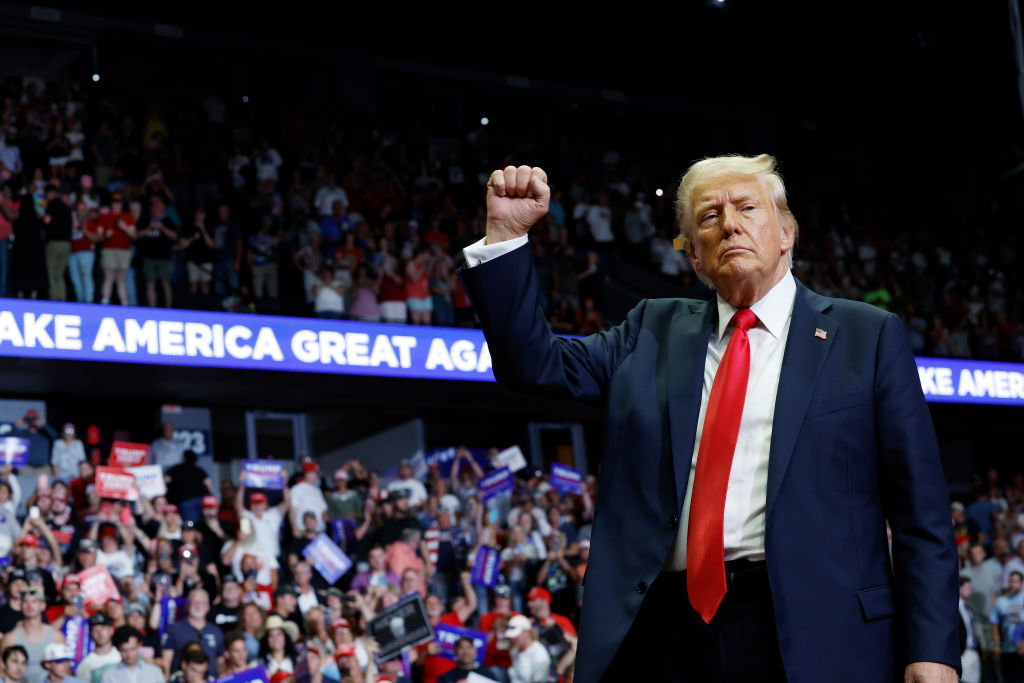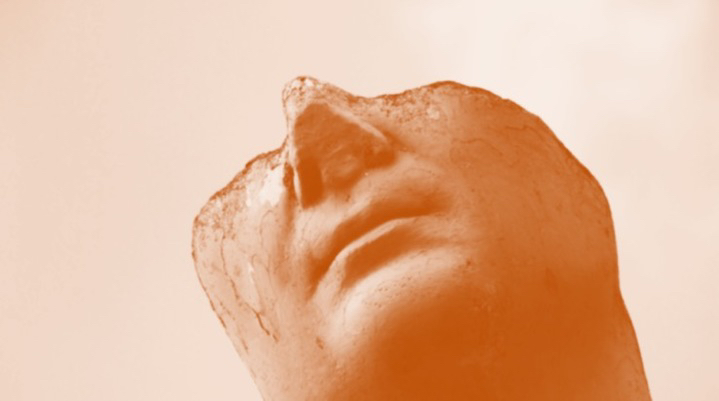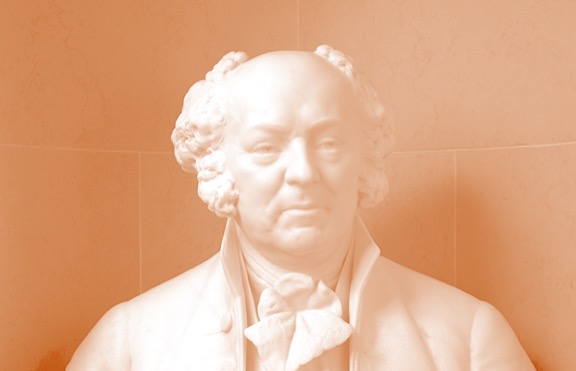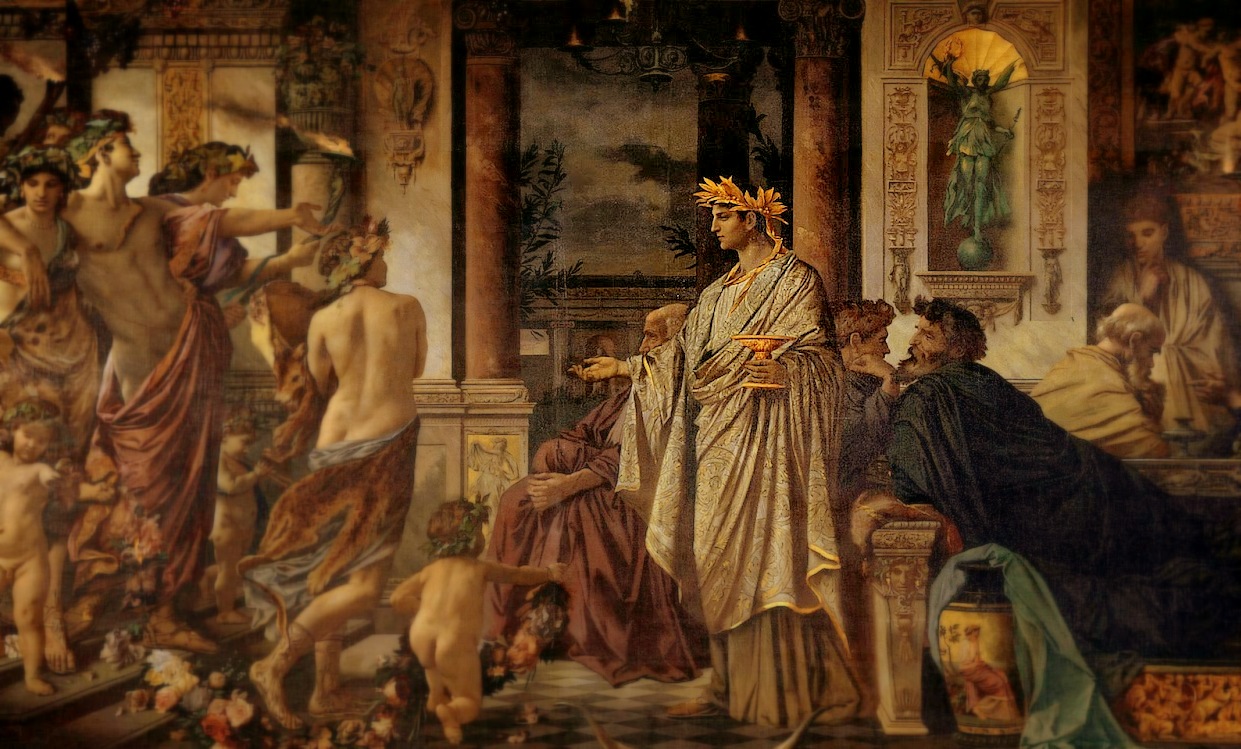The Conservative Dilemma

Reviving the Hamiltonian spirit in an era of populism.
Conservative pundits laud Donald Trump for catapulting right-wing populism to the forefront of American politics. But how does zeal for a man who regularly proclaims himself the voice of the “silent majority” sit with traditional conservative concerns about the raw majoritarianism that infects our civic culture?
MAGA populism has forced conservatives to grapple with what conservative statecraft should look like going forward. This question is particularly relevant given the Supreme Court’s recent overturning of the Chevron doctrine, thus curbing the power of the administrative state by stripping its ability to interpret ambiguous statutes independently. A second Trump presidency unhindered by a rogue bureaucracy unaccountable to the people could finally allow conservatives the opportunity to govern substantively at the national level.
But we are still confronted with the question of what philosophical framework should guide conservative governance. The answer can be found in Alexander Hamilton’s writings in The Federalist, where he supports an “energetic” executive—that is, a vigorous chief executive uninfluenced by the fickle passions of the majority.
Many in Hamilton’s time accused him of being a closet monarchist, or that an energetic use of executive power would be a back door for a tyrant to take control of America. Similarly, the Left today fears that conservatives want to install a dictator, unchecked by an army of experts.
But it is precisely the erosion of the Hamiltonian spirit in executive governance that has led to the establishment of a vast bureaucracy of unseen and unelected actors who can undermine the president’s authority. It is imperative to our constitutional order that the president control his own branch, within the parameters of the Constitution.
Even if Trump were to be a tyrant if he becomes president again, conservatives ought to echo the Hamiltonian sentiment of preferring a tyrant we can see over those who remain hidden in a vast sea of “civil servants.” Hamilton explicitly warned against an executive branch controlled by a multitude, arguing that it would breed dissent and, in the case of tyranny, hinder the public’s ability to determine who had engaged in wrongdoing.
In his book The Lost Soul of the American Presidency: The Decline Into Demagoguery and the Prospects of Renewal, Stephen F. Knott traces the American presidency’s gradual impotency to its initial deviation from the Hamiltonian ideal. Knott identifies the administration of Thomas Jefferson, whose indiscriminate emphasis on popularity as the primary judge of presidential legitimacy, as the first departure from the presidency’s Hamiltonian origins. Though Jefferson was opposed to Hamilton’s aristocratic republicanism, Knott argues that Andrew Jackson was the first true demagogue-as-president who exploited popular sentiment for political gain.
Woodrow Wilson and the corrosive strain of progressivism he brought to the White House dealt a major blow to the constitutional presidency. Wilson is regarded as the father of modern public administration. His worldview—that the public is better governed by policy “experts” than our constitutionally ordained method of indirect representation—has informed a century of administrative rule in Washington.
Knott sees Trump as the antithesis of the Hamiltonian ideal, the logical conclusion of a dangerous precedent long ago set by Jefferson and Jackson. Trump has contributed to the presidency’s transformation into an institution riddled with political showmanship, engaging in fierce mudslinging that further denigrates the office and erodes the public trust.
And so what of conservative populism itself? How can a movement that so regularly revolves around Trump—a man who embodies so much of the populist fury Hamilton would have opposed—honestly coexist with Hamiltonian principles of executive governance? After all, as Hamilton wrote in Federalist 68, presidents should not be engaging in “the little arts of popularity.” It is hard to imagine any Hamiltonian sentiment taking hold in a movement that regularly espouses disdain toward “the elites.” Hamilton indeed could be described as the ultimate elitist (within the context of American governance, of course), being the visionary for a government where elite interests help curb the impassioned zeal that informs many democratic movements.
Many have therefore reasonably concluded that a Hamiltonian presidency is impossible in our age of rampant partisanship. In the literal sense, this may be true. But it may also be possible to give this current wave of Trump-era conservative populism a bit of a Hamiltonian kick.
This can be done by recognizing that the conservative disdain toward our current elite class ought not be conflated with the notion that we should have no elites. Conservative populism can only channel the Hamiltonian spirit of governance by recognizing that a new elite class is inevitable. This new elite class should be guided by noblesse oblige, the responsibility to act by example, and embody the core virtues of good statesmanship that Hamilton so regularly espoused such as justice, prudence, and a solid commitment to the common good over petty popular squabbles.
I am not convinced that Trump himself can embody these virtues. However, functionally speaking, a second Trump presidency would allow conservatives to lay the groundwork for a revitalized, energetic executive free from the unjust hindrance of partisan administrators. More profoundly, it could make way for a revitalized republic that embraces aristocratic checks on the democratic tendency to embrace transient causes.
The American Mind presents a range of perspectives. Views are writers’ own and do not necessarily represent those of The Claremont Institute.
The American Mind is a publication of the Claremont Institute, a non-profit 501(c)(3) organization, dedicated to restoring the principles of the American Founding to their rightful, preeminent authority in our national life. Interested in supporting our work? Gifts to the Claremont Institute are tax-deductible.
A new political vocabulary is needed for a world itself quite new.
Part I: Unfettered reason cannot conserve anything.
Part II: Honor and self-constraint can stave off tyranny.






